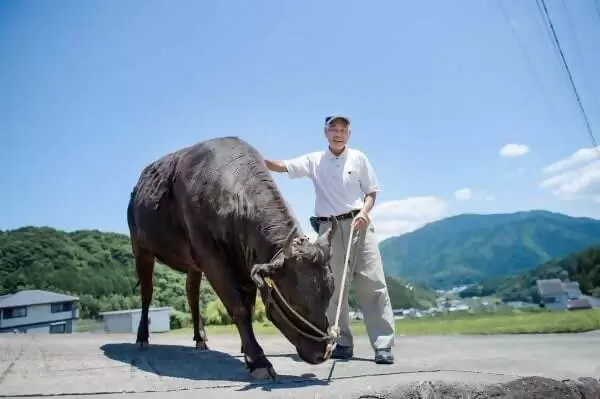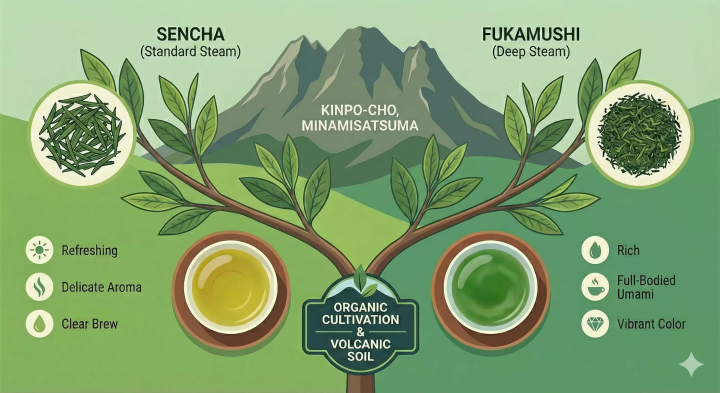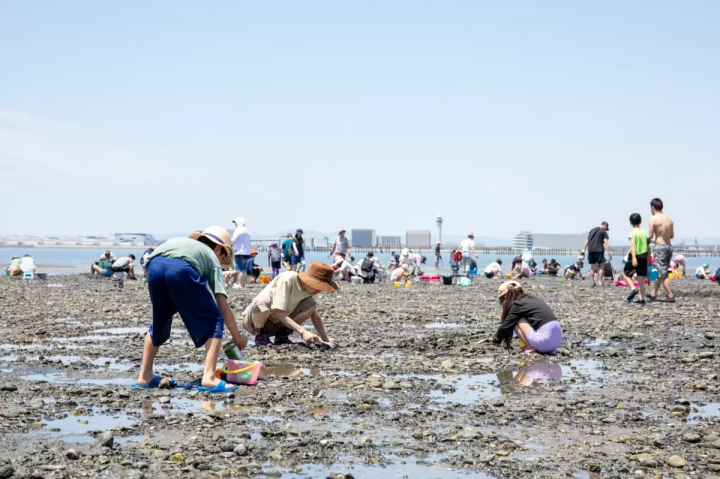Japan Travel Etiquette: 10 Dos and Don'ts in 2022

Japan is famous for its customs and etiquette, and sometimes a stay in a new country can offer some specific challenges and surprises! Below is a list of 10 helpful dos and don'ts for those visiting Japan.
Japan is often regarded to be a country with many specific social rules and etiquette practices, as well as sometimes offering some unexpected surprises to first-time visitors!
For those new to life in Japan, it can seem like a very daunting world to navigate! But don't be discouraged! We've compiled a list of 10 helpful dos and don'ts for new visitors to the country, which will hopefully help you to get by without issue and enjoy your stay to the fullest!
1. DO Wear a Mask When Possible

Why Mask Wearing is Still so Important to Many in Japan
The wearing of face masks has always been a common habit among people in Japan, particularly during bad flu seasons. However, it may be surprising for some visitors to see just how many people still adhere to mask wearing rules in 2022.
And although the Ministry of Health has advised that masks are not always necessary outdoors, and that care should be taken to avoid heatstroke, it is still common to see large numbers of people outside wearing masks.
One key aspect of mask wearing in Japan s the concept of respect. Masks are not so much about protecting oneself, but also about illustrating to others that you are conscious of and concerned about their health. Refusing to wear a mask in an indoor space can be perceived as you communicating to others that you do not respect them or care about their health.
The concept of respect is a major cornerstone to many aspects of Japanese culture, and it is good to be aware that people living in Japan may be particularly sensitive to those around them not following certain rules in public; mask wearing being a major one at this moment in time.
2. DON'T Make Phone Calls on Public Transport, and Be Careful of Your Speaking Volume

Though it may not seem to be such a huge offense to many outside of Japan, speaking on the phone while on the train is a big no-no, and is considered to be pretty rude. This includes long train journeys, but don't worry; bullet trains and certain long distance express trains will have special areas between cars where commuters can take important calls.
In general, it is considered to be uncourteous to others to speak loudly on trains and in many other public spaces, and so it is best to take care regarding your speaking volume and try to match it with those around you if possible. Apartment walls tend to be quite thin, so even at home it's good to take care not to shout!
3. DO Be Mindful When Dining (and Be Careful With Your Chopsticks!)

There are some specific etiquette rules while dining in Japan (particularly in relation to chopsticks!) and knowing the reasons behind these rules can make them much easier to remember!
Two famous rules are not to leave chopsticks standing upright in food (particularly in a bowl of rice), and also to never pass food directly between different pairs of chopsticks. The reason for both of these rules is actually related to death and funeral customs.
When leaving a bowl of rice as an offering for the deceased, chopsticks are placed standing upright. Regarding the passing of food, it is reminiscent of how cremated remains are passed between people as part of the cremation ceremony.

It is also considered impolite to rub or roll chopsticks together (done by some to remove splinters), as it can be considered an insult to the host or owner regarding quality.
Slurping noodles is totally ok, and is considered a good way to cool them while eating, as well as get a better experience of the taste (it's not mandatory though!)
Another point worth mentioning is tipping at restaurants, as it is not needed! As a general rule, tipping is not required in Japan, because the service charge is already included in the bill. Your server may even be quite shocked to see a tip, so it’s better not to put them in an uncomfortable situation by insisting on giving one!
Read also
4. DON'T Layer on the Fragrances

Why Strong Perfume is Not Appreciated, Especially in Restaurants
There is actually a term in Japanese that translates as "smell harassment". Though the phrase is often used to refer to intrusive body odors, it also covers strong perfumes and even strong clothing detergent or fabric softener scents. There seems to be a general preference among many in Japan for lighter fragrances and more natural scents. This is particularly true while dining with others.
One major reason for this is that wearing perfume is considered to actually spoil the experience of eating at certain types of restaurants. A lot of Japanese cuisine uses relatively subtle flavors, and a strong smell is believed to affect the taste and overall experience significantly.

Sushi in particular is best consumed away from strong smells, including the scents of cigarette smoke and perfumes. It is also considered to be impolite to risk bothering other diners by using strong fragrances in their presence. For this reason, it's generally better to avoid wearing strong perfumes while dining out.
5. DO Enjoy the Nightlife!

Nomikai, Izakaya, Karaoke, and the Importance of Letting Loose and Having Fun
With its many specific etiquette practices, Japan is sometimes stereotyped as being an extremely strict country of.rules and formal protocol. With that image in mind, many visitors are taken aback when they see how much many people in Japan enjoy fun and nightlife!
There are many young people living in major cities such as Tokyo and Osaka who live a kind of work hard, party hard lifestyle, and this can definitely be seen at night in places such as Shibuya and Dotonbori. For many working people, activities such as drinking and karaoke are considered to be vital ways to bond and relieve stress.

Japanese drinking gatherings, or "nomikai" are actually deeply connected with work culture and are a key place where colleagues connect. Important business decisions can sometimes be made at these times. There is even a term in Japanese known as “nomicommunication” - communicating with the help of drinking - and alcohol is a major social lubricant for many.
Izakaya, or Japanese-style pubs, are major places for socializing in Japan. These establishments are popular venues for "nomikai". But even if you don’t drink, you can still enjoy the fun atmosphere and great food on offer in many izakaya!
Another hugely popular way for people to bond and have fun is karaoke. Singing in public may seem like a type of social torture for those not used to it, but in Japan it’s a very normal pastime. Shame and embarrassment go out the door once a session has started!

Though it may seem scary to some, karaoke is an incredible way to learn about Japanese history and culture through music (and about other countries too!)
Groups of people doing karaoke together will often be intergenerational and may be from many different backgrounds, giving you the opportunity to listen to songs from various eras and places that you may not have discovered by yourself. You may find yourself discovering the beauty of Enka in a way you hadn’t expected to at the beginning of the night!
Letting loose and having fun in a social setting offers an important way to connect with others, and can help visitors to understand the culture on a deeper level.
6. DON'T Make Karaoke a Competition!

Continuing on from the previous point; karaoke is mainly about letting loose and having fun, and shouldn't be about competing with one another! And it certainly shouldn't be about judging others!
The main goal in karaoke is to create a great atmosphere for everyone, where nobody feels unwelcome or embarrassed, regardless of singing ability. People should also avoid hogging the mic, and ensure that everyone who wants to sing has the chance to do so!
The people who are most fun in karaoke are frequently not the best singers - it’s all about having fun and ending the night with a great feeling.
7. DO Be Careful to Take Off Shoes; Both in Homes and in Specific Public Spaces

As a general rule, shoes should not be worn in any private homes or apartments. That includes if you choose to rent a place or stay in an Airbnb while in Japan.
It’s not just homes though; and although the rules may seem intuitive to those living in the country, they can sometimes be a little unclear and get a bit confusing to those not accustomed to them. For example, some restaurants will require customers to remove shoes, while others won’t. Likewise with certain hotels and tourist attractions. Even some doctor’s offices will have this rule, while many others won’t!

As a general guideline, if you see a "getabako" (a shelved area for storing shoes) at the entrance, then it is almost certain that you will be required to remove your shoes at that particular establishment.
A lot of higher-end izakaya restaurants will have an area at the entrance where shoes are permitted but will have a locker section for storing shoes before entering the main dining area of the restaurant. Though staff will generally inform customers of this when they enter, it is good to be mindful, as some people walk through without noticing!

Larger public baths usually have a similar setup with shoe lockers; however staff may not be waiting to instruct customers regarding what to do, so it’s best to pay close attention. Smaller public baths will usually require all guests to remove shoes at the entrance and use a "getabako".
Another good guideline is whether the building is a Japanese-style one. In general, all Japanese-style buildings will require customers to remove shoes indoors, particularly on tatami flooring.
This rule must be strictly followed in Japanese-style accommodations such as ryokans, as it is essential not to damage the flooring. It is of particular importance to remove shoes when entering historical buildings - there will usually be staff at entrances assisting with this.
Read also
8. DON'T Eat or Drink in These Places (and Try to Avoid Eating/Drinking While Walking)

Many famous temples and shrines such as Fushimi Inari in Kyoto have small shops and stalls selling souvenirs lining the streets leading up to the temple/shrine. Many of these shops sell delicious food and snacks such as grilled mochi and beef skewers, which seem like they're perfect for eating while walking around the area!
But be careful; it's actually not permitted to eat on the grounds of temples or shrines themselves, and many of these shops will have a small seated area nearby specifically for enjoying food and drinks.
Eating and drinking while walking, in general, is seen as a bit rude, and most people will find a spot to sit to enjoy their food, often close to the vendor.
9. DO Be Mindful if you Have Tattoos (and Why It’s Important)

Japan's relationship with tattoos is somewhat complex. Body art has a long history in the country and it is home to some of the most beautiful and iconic tattoo art styles in the world. Yet attitudes towards tattoos remain relatively conservative, and having obvious tattoos can even make it difficult to enter specific public places.
One reason for negative perceptions is a historical association between tattoos and gangs. The Yakuza has had a particular tradition in regard to tattoos, and this has also been cemented in the media.
Most of those holding strong negative views regarding tattoos tend to be from older generations, and not everyone shares these feelings.

However many public places will have strict rules regarding tattoos in order to not risk upsetting any of their clients, and public baths, in particular, can pose issues. Some gyms, public pools, and hot spring resorts may also have strict rules.
One way around this is to cover tattoos when possible with large band-aids. Another is to be aware of specific establishments which may have rules regarding tattoos, and to check beforehand to avoid any potential problems.
Read also
10. DON’T Underestimate the Summer Heat (and Humidity)

Japan is known for having one of the most uncomfortable summers in Asia, but many don’t realize just how harsh it can feel until they arrive!
The temperature itself is comparable with many other regions in the Northern Hemisphere, often staying around 30°C - 35°C (86°F - 95°F).
The main issue is the high humidity; with levels often rising above 80% in the hottest months. This combination of relatively high temperatures and extreme humidity creates conditions that can make going outdoors literally feels like stepping into a sauna.
Kyoto’s summer is famed for being particularly brutal; the region is located in a basin, surrounded by mountains, meaning there is no coastal wind to offset the temperature or lower the humidity. Despite this, the region sees droves of tourists every summer, many ill-prepared for the climate, and struggling to enjoy the sites in the oppressive heat.

Photo by Pixta
It’s not all terrible though; Japan is beautiful in all seasons, and not all regions experience such unpleasant conditions. Many northern regions like Hokkaido and mountainous areas such as Karuizawa are far more comfortable in summer. And for those intent on visiting Honshu in summer, all is not lost!
The key is to know how to cope with excessive mugginess. Expect to sweat, and always carry water with you (avoid carbonated or sugary drinks, as they may dehydrate you more!) Make sure to spend ample time in air-conditioned spaces. Try to avoid spending too much time in the midday sun, instead venturing outdoors mostly in the earlier morning hours and in the cooler evenings. Always be aware that heat stroke is a real risk in these conditions, and avoid over-exerting yourself!
Summer is a beautiful time in Japan, so make sure you can enjoy it to the fullest by following these steps! And if you really don't do well in the heat, spring, fall, and winter are incredible times to visit!
Read also
Do Have Fun, and Don't Let the Rules Scare You!
The most important thing to remember during your stay is to respect others, stay safe, and enjoy your time in Japan! Though you may find some things a little surprising at first, it certainly doesn't change the fact that it is an amazing country and there is so much to enjoy!
Read also
Main image by Pixta
Travel writer based in Tokyo with a strong interest in art and Japan's traditional crafts.










































![[Kagoshima] Overcoming 12 Years of Hardship: Walking through Minamisatsuma City, the sacred land where the monk Ganjin landed](https://resources.matcha-jp.com/resize/720x2000/2026/02/21-259481.webp)



